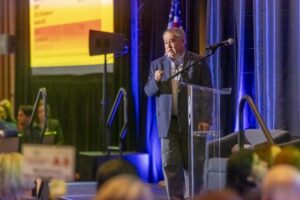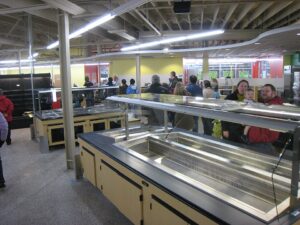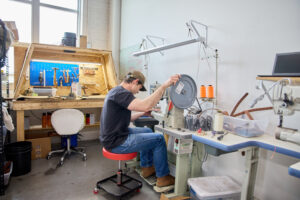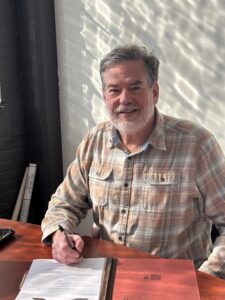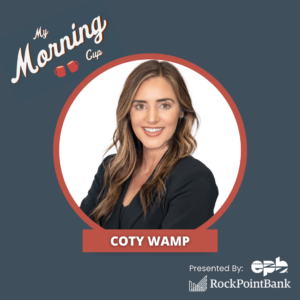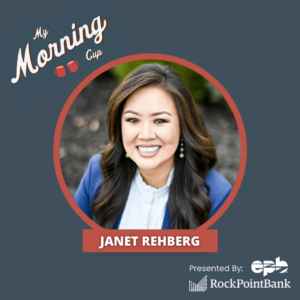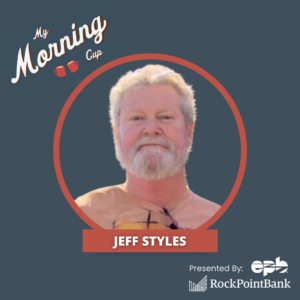The views expressed in this article represent the opinions of the author and do not necessarily reflect the opinions of the Chattanooga Area Chamber of Commerce, its staff, or its board of directors.
As the Scott L. Probasco, Jr., Distinguished Chair of Free Enterprise and Professor of Economics at the University of Tennessee at Chattanooga, I’m excited to launch The Exchange, a monthly column, in Business Trend. Established in 1977 through a visionary bequest from Burkett Miller honoring his friend Scott L. Probasco, Jr., a Chattanooga business leader and philanthropist, this privately funded professorship champions free enterprise and personal freedoms through research, teaching, and public outreach. In today’s fog of economic myths and calls for government fixes, that mission is vital. This column will cut through the noise with insights rooted in economics. But I won’t tell you what to think; that’s not economics. Economics teaches us how to think more clearly about complex phenomena.
Economics isn’t a dusty textbook or a politician’s soundbite. It is the study of human action—how you and I, not bureaucrats, decide what to do with our time, money, and skills. It isn’t an ideology. Economics is about how people make choices, trade freely, and create prosperity. It’s rooted in self-ownership: control over your life, labor, and property. From that flows voluntary exchange, what the Greeks called katallasso, turning strangers into allies through trade. A Chattanooga coffee shop owner trades coffee for a plumber’s service; both gain, no coercion needed. Scaled up, these trades fuel free markets, channeling self-interest into service. A shopkeeper chasing profit stocks your favorite goods. Her gain is yours. This isn’t greed. It’s the magic of markets, where self-interest drives people to serve others. It is the essence of Adam Smith’s invisible hand principle. And the data back it up. Economies with freer markets boast higher incomes and less poverty.
Markets aren’t perfect; people aren’t angels. The same individual self-interest that exists in markets remains when those individuals take office. But unlike markets, where self-interest aligns with service, political self-interest often pits groups against each other, with winners and losers decided by lobbying dollars. Politicians, chasing votes in a zero-sum game, often push policies that sound good but wreak economic havoc. Think price controls that leave grocery shelves bare, rent caps that kill housing supply, or regulations that bury small businesses in red tape. Markets, for all their messiness, tap the dispersed wisdom of millions making free choices, weaving prosperity no central authority could design.
I learned this not in a lecture hall but on the banks of the Ohio River in West Virginia, where I grew up in a working-class family. Prosperity seemed to stop at the state line—Ohio had the stores, while WV had very few. As a kid, I was always annoyed that we had to drive 10 minutes up the river, cross a bridge, and backtrack along Ohio’s side just to buy groceries. That annoyance sparked a curiosity to understand the world around me. That curiosity led me to economics, a field I didn’t even know existed until, as a first-generation college student, I took my first class at Marshall University. I was hooked.
At West Virginia University, earning my Ph.D. in economics, I embraced Austrian economics, with its focus on individual choice, subjective value, spontaneous order, and public choice theory, exposing how political self-interest distorts policy. These shaped my research, over 55 peer-reviewed articles, showing how property rights, individualistic cultures, and economic freedom drive progress.
Secure property rights don’t just protect wealth. They empower ordinary folks to solve each other’s problems and drive progress. They also anchor liberties like free speech and religious freedoms, empowering action.
Why this column now? We’re at a tipping point. Politicians peddle fantasies of “free” college, healthcare, or housing, conveniently forgetting that someone—you, the taxpayer—foots the bill. Regulations, sold as protection, strangle Chattanooga’s entrepreneurs. Meanwhile, anti-market rhetoric floods social media, convincing too many young people that the system that’s doubled lifespans and slashed global poverty is somehow the enemy.
Working alongside me at UTC is Kim Holder, Managing Director of the Center for Economic Education (CEE), a Probasco Chair initiative that empowers people of all ages with economic and financial literacy. The CEE delivers innovative programs, from K-12 teacher training to community workshops, teaching how individual choice and free markets drive progress. By equipping students, educators, and citizens with the tools to make informed decisions, the CEE fosters opportunity and strengthens our region’s free society. Together, the Probasco Chair and CEE champion the power of free people solving problems through markets, a key theme I’ll routinely revisit in my forthcoming columns.
As educators, we see students craving clarity yet confused about how to engage with others who may have different viewpoints. On many college campuses, debate gets shouted down or outright canceled. Since 1977, the Probasco Chair has stood for open dialogue. Through initiatives like the Burkett Miller Distinguished Lecture Series and the Phillips Scholarship in Free Enterprise, the chair has consistently brought diverse perspectives to UTC, encouraging respectful debate grounded in reason and evidence. In today’s polarized college environment, this commitment is vital. It cultivates critical thinking, mutual understanding, and the ability to engage constructively across differences, equipping students to navigate complex issues and strengthen a free, democratic society. In a divided world, that’s not just nice, it’s essential. Civil liberties thrive on the free exchange of ideas, just as markets thrive on the free exchange of goods. This column will carry that spirit, inviting you to think, question, and debate.
So, what’s next? Each month, we’ll unpack the economic forces shaping our city and nation. We’ll tackle issues that hit home in Chattanooga like taxes, trade, jobs, immigration, and education. We’ll show how the economic way of thinking, rooted in choice, trade-offs and voluntary exchange, makes each of us better problem solvers by empowering individual choices while exposing government’s limits. And we’ll do it with the conviction that free markets, for all their messiness, are the best hope for a society where everyone has a chance. As a kid in West Virginia, I learned that hard work and freedom go hand in hand. As the Probasco Chair, I’m here to share that lesson with you. Let’s get to work.
Claudia Williamson Kramer is the Scott L. Probasco, Jr., Distinguished Chair of Free Enterprise, Professor of Economics, and Executive Director of the Center for Economic Education at UTC.
To hear more from Dr. Kramer, listen to her latest conversation on WUTC here: https://shorturl.at/CyWM0


